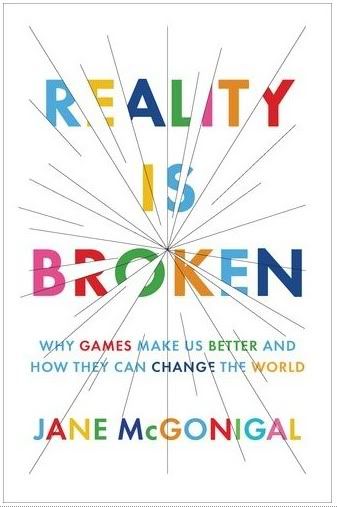Increasingly, however, this restrictive and short sighted vision of gaming is being challenged. Governmental analysts are beginning to confirm something that, deep down inside our heart of hearts, we've always known; gaming makes us better people. This assertion is two fold - on the one hand, there is the exciting prospect that gaming physically and mentally trains us for certain situations. A couple of weeks ago, The Onion jokingly suggested that games such as Gears of War and Fallout 3 are training our children to survive in a post-apocalyptic wasteland.
I know I've learned that surreptitiously slipping a live grenade into the pockets of unsuspecting bandits can be a laugh riot, and iguana bits are no substitute for vast amounts of synthetic Nuka-Cola. Today wired.co.uk (my faithful friend) published an article by Noah Schachtman on how American analysts are using videogames to weed out bias in their operatives.
I have to admit there is a place in my gut which leaps at the thought that playing Black Ops might make me into a one man killing machine, a real life 007; utilising my twitch reactions to mow down a camp-full of bogies in seconds and then zip lining into my chalet in Switzerland with my sultry femme fatale; Olga. In actuality I think the only thing I'll end up with is bad eyesight, a bit of a belly and the thumbs of a 65 year old.The agency is looking to axe everything from "anchoring bias" (relying too much on a single piece of evidence) to "confirmation bias" (only accepting facts that back up your pre-made case) to "fundamental attribution error" (attributing too much in an incident to personality, instead of circumstance).
On the other hand, there is the implementation of gaming in the effort to stimulate real social change. On a more Alternative Reality Gaming slant; Jane McGonigal's book "Reality is Broken: Why Games make us Better and how they can Change the World" focuses on the attempts at using games to raise awareness and encourage "off the wall" thinking when it comes to national and international social problems. McGonigal states that reality is broken because games act as "happiness hacks" and so are more productive at producing happiness than real life situations. This is why gaming is so often used as an escapist pastime.
 McGonigal goes on to state that instead of lamenting this change, perhaps the strengths that can be found in gaming strategies could be harnessed to affect social change. Alternative Reality Games could be used as vehicles to increase awareness of particularly critical subjects or even stimulate players to actively improve their lives through giving real world targets to attain.
McGonigal goes on to state that instead of lamenting this change, perhaps the strengths that can be found in gaming strategies could be harnessed to affect social change. Alternative Reality Games could be used as vehicles to increase awareness of particularly critical subjects or even stimulate players to actively improve their lives through giving real world targets to attain. Michael Andersen at ARGNet did a sterling job reviewing and summarising McGonigal's latest book, although he is skeptical of the application of gamification tactics to real world problems stating that he does not wholly believe that gaming strategies can be applied to "complex problems that are resistant to game designer attempts to reduce goals to concrete action steps". I've already stated that ARG gaming has affected me in a very real way, increasing my ability to make connections, widening my knowledge of cryptography and deduction and giving me a wide variety of skills which I have already been able to apply to my life.
I'm quite enthusiastic about gaming being a vehicle for change in real life, but I believe we need a big push; something to really carry gamification into the media eye and advertise it as a powerful vehicle for social revolution. Alternative Reality Games need the equivalent of what Facebook was for social networks.

I think RPGs have made me more conscious of the fact that decisions I make often have long term consequences. As a result I think I think things through and evaluate situations better. It's not that I used to be a bad decision maker, but I don't think my skills for evaluating situations were as refined.
ReplyDeleteI think RPGs have made me more conscious of the fact that decisions I make often have long term consequences. As a result I think I think things through and evaluate situations better. It's not that I used to be a bad decision maker, but I don't think my skills for evaluating situations were as refined.
ReplyDeleteI think RPGs have made me more conscious of the fact that decisions I make often have long term consequences. As a result I think I think things through and evaluate situations better. It's not that I used to be a bad decision maker, but I don't think my skills for evaluating situations were as refined.
ReplyDelete